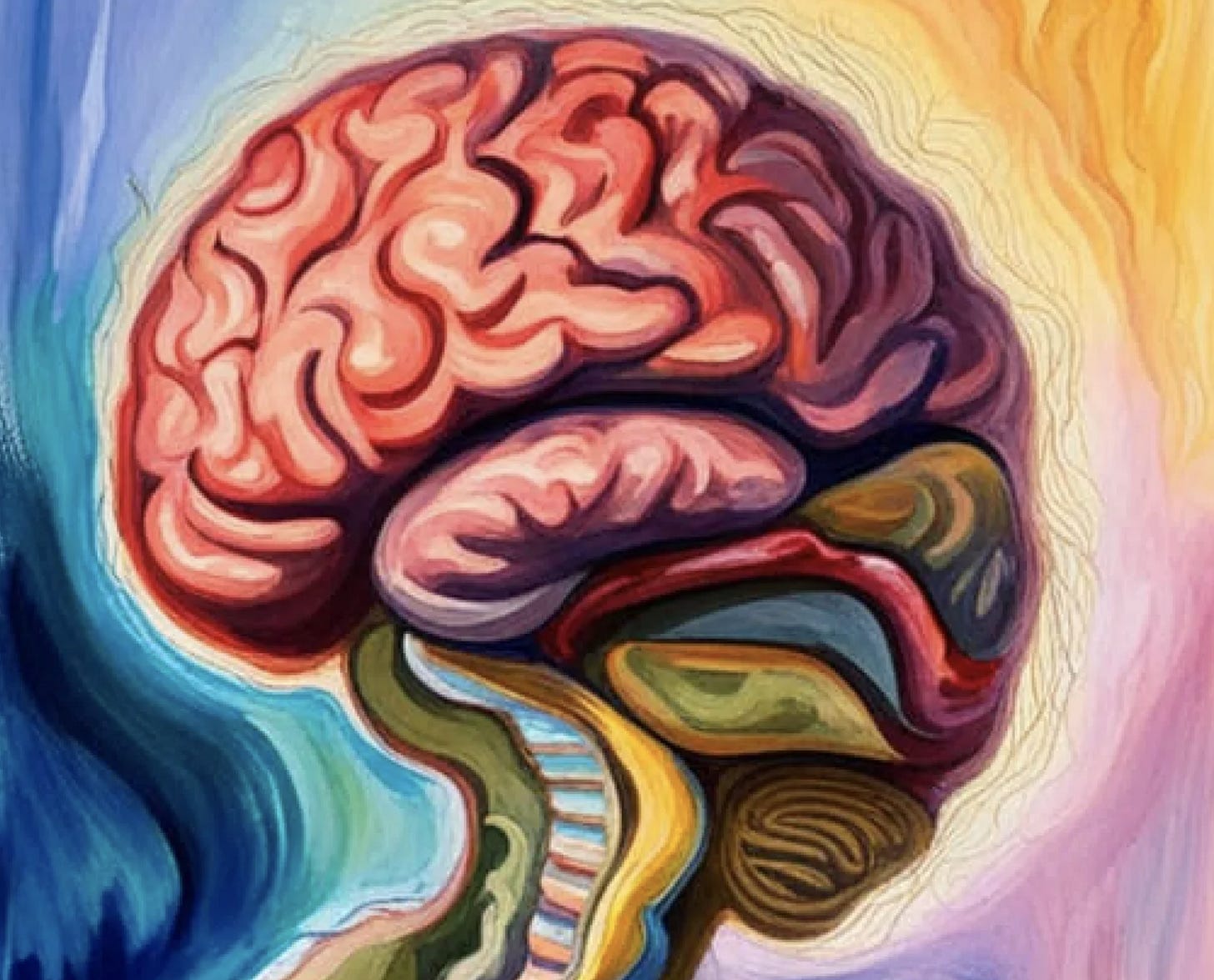Take the Self-Eating Brain quiz and get downloadable guide for your brain type
You might think that being good at things meant feeling good about those things. And yet, here we are. More often than not, it seems that the opposite is true true. |
For many people, using their particular talents becomes fraught in direct proportion to those talents. No one worries they might not actually be smart enough like the people who have been told their whole lives how smart they are.
I’ve been coaching and teaching people like this for long enough that I’ve seen most of the main ways that this tangle tends to manifest itself. And while there is significant variation and overlap, there are a few recognisable types of what I call the self-eating brain: the over-deliverer, the spin-cycler, the upper-limiter, and the white-knuckler.
Before I describe these, I want to acknowledge that diagnostic labels can sometimes have downsides, in that they can wind up reinforcing the very behaviour we want to shift. But, in this case, I think the opposite is true because the struggle to use our talents can feel so amorphous, lonely, and mysterious. From witnessing what’s helped me and what helps my clients, I know that having a way to describe this experience in concrete terms can instantly make it feel more manageable. And knowing that there are many MANY people having the same experience can also significantly lower the ambient shame temperature around this struggle.
Plus, none of this is meant to be permanent. Unlike frameworks such as the Enneagram, this schema isn’t designed to describe your personality type. It’s designed to describe your internal resistance type—i.e., or the particular ways that you get stuck in relation to using your skills and talents. The entire point of recognising your type is to enable you to get more traction in releasing its hold on you. We want to understand the way your brain is eating itself so we can stop all the eating.
Finally, as you read through the types below, keep in mind that you may have moved between them at different moments. For example, over-deliverers often become white-knucklers as their careers progress. If you’re not sure where to locate yourself, use the signature mode of internal resistance as the deciding factor.
With all that said, read on and take the quiz see where you fall.
Over-deliverer
Does more than seems humanly possible
Early success, early burnout
Would rather act than reflect
‘If I’m so great, why do I feel so empty?
Identifying strengths: basically kicking ass in every direction
Signature mode of internal resistance: accomplishing something
Nemesis: empty time
Needs: to locate and embrace the self outside of the delivering persona
Spin-cycler
Has 738 ideas at any given time
Enough talents/skills for three normal people
Advanced degree but doing something completely different
‘If I’m so talented, why haven’t I still done X?’ where often X = writing a book (Spin-cyclers may well have already written at least one book, but if so it wasn’t the RIGHT book)
Identifying strengths: Did I mention the number of talents and skills?
Signature mode of internal resistance: starting a new project that is still not X
Nemesis: choices
Needs: understanding and dismantling of whatever makes the risk of doing X intolerable; embracing their particular ways of working
May have ADHD but it’s not a requirement
Upper-limiter
More powerful than they’re letting on (and they may already be pretty powerful)
Has a strong internal compass but only follows it to a point
‘How will I be made to pay if I do/get/accomplish this?’
Caught between fear of de-cloaking and FOMO
Identifying strengths: Original thinker/actor. Internal compass points are somewhere unusual.
Signature mode of internal resistance: asking for advice/signing up for a training
Nemesis: being fully seen
Needs: find and address whatever makes them feel it’s dangerous to unleash and de-cloak
White-knuckler
Bossing it everywhere but in their own minds
Usually have achieved significant professional success with no reduction in their sense of precariousness
A constant fear of facing the firing squad
Positive feedback = temporary reprieve
Identifying strengths: Low drama about big choices related to skills/career. Knows what interests them and moves toward it.
Signature mode of internal resistance: numb out, by any means necessary
Nemesis: criticism
Needs: a baseline of emotional safety that decouples achievement from survival
What’s next
You may already have a sense of where you fall on this spectrum, but the quiz will give you a definitive result. After you take the quiz, you’ll also get access to a bespoke guide I wrote of next steps for each type, which gives you some things to reflect on and try for your specific kind of brain.
But whatever you do, remember that you’re not alone. There are enough people struggling in these same ways that I can pattern-recognise them into types, and that’s just from my direct experience as a coach and professor. We’re all in this together, just in slightly different ways.




